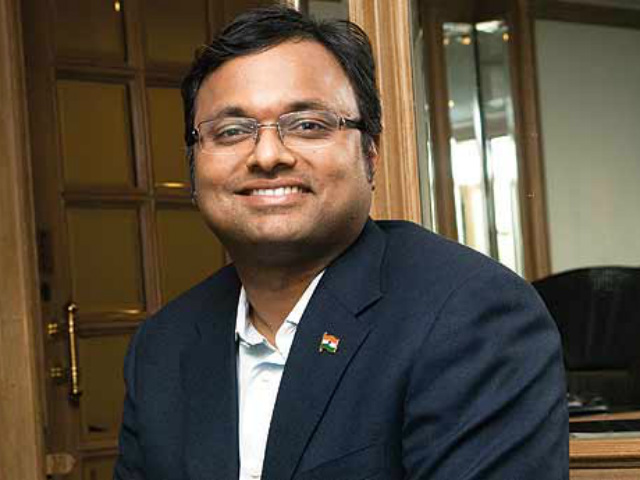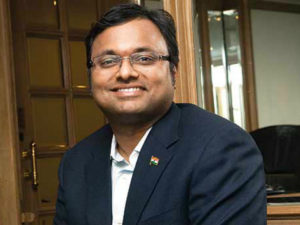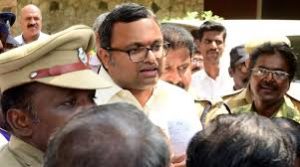The Chidambaram conundrum

- VIrag Gupta
The raison d’être of Prime Minister Modi’s success is that he carries no baggage of family. Devoid of filial ties, Modi has his mind singularly focused on his mission, a luxury that most other leaders do not enjoy. Congress has been marred by allegations of dynastic politics, which is said to be working for the Family’s interest. The fact that under UPA, the Government was being run from 10 Janpath and not 7 Race Course is said to be an open secret.

As perhaps one son brought Congress’ downfall in 2014, another son Karti may be more disastrous in the election year.
Congress’s continued attachment to Karti Chidambaram, who had in a failed attempt contested on its ticket from his father’s constituency in 2014, is understandable. But in the INX Media case as of now, Karti has been arrested by the CBI and remains in judicial custody but the Enforcement Directorate (ED) too is tightening its noose around him.
Karti’s minor victories before the courts could only be secured by a battery of illustrious lawyers, including his father. His act of waving and raising his hand triumphantly was perceived as an act of arrogance. However, the judgement of the people’s court is very different from that of the court of law.
After the INX controversy, the ED has reportedly scrutinised 2,721 FIPB files cleared by P Chidambaram out of which 54 are said to be doubtful while in seven cases, other than the INX corruption case, he is under investigation. During investigation, it has been revealed that soon after the FIPB approvals, Advantage Consulting, an entity alleged to be associated with Karti registered its first invoice and many soon followed. The fact that this was indeed bribe money is something that the investigating authorities will have to prove before court.
The Karti episode brings to light instances of relatives of politicians benefiting from their official positions. The list in this regard is long and across the party paradigm, ranging from Robert Vadra, Jagan Mohan Reddy, wife of former Himachal CM Virbhadra Singh and Ranjan Bhattacharya, the foster son-in-law of former PM Atal Bihari Vajpayee.
The Supreme Court last month gave its judgement in the Lok Prahari case wherein it stated, “A clean and fair electoral process is a sine qua non for any democracy.” It also stated that “the experience of the first 50 years of the functioning of democracy in this country disclosed some undesirable trends that have crept into its working.”
The Supreme Court noted that undue accretion of assets by the legislators is a sign of failing democracy and that other countries have already taken steps to counter the same. To ensure the laggardness of the Government does not mean doom for democracy, the Apex Court directed continuous monitoring of assets of legislators and their associates. It directed that Rule 4 of Elections Rules and Form 26 that is filed at the time of elections be suitably amended. If PM Modi wants to fulfill his promise to reform the political system, he should immediately enforce the Apex Court’s directions.
As per Transparency International’s Corruption Perception Index in 2017, India’s ranking has slipped by two places when compared to last year, which either signifies worsening corruption in India or improvement by other countries. Questions have arisen on the need for India to have a legislation to stop corruption arising from conflict of interest. Legislators having business interests in a particular sector have been seen to be present on panels and bodies, deciding crucial policies for the same. Advancement of private interests while being a public servant is not only dereliction of duty, but also shows moral decay.
Research shows that candidates during elections, on an average spend five times more than the prescribed limit. Exorbitant amounts spent during elections is sought to be recovered, as a return on investment, as if politics is business. Apart from the above ongoing abuses, out of total 4,910 MPs and MLAs about 1,700 of them are already facing criminal charges. Despite huge assets, parliamentarians have made provisions for post retirement pensions, which is under challenge before the Apex Court.

Before becoming the prime minister, Modi had said that the Parliament is a temple which should be free from criminals and corrupt people. The BJP Government formed the SIT as per directions of Supreme Court and claimed to be waging a war on black money. The Karti episode, along with the judgement in the Lok Prahari Case, gives government agencies a chance to wage a real war against political corruption. If the financial audit of political families is also done, it may expose many other big fish apart from Karti and highlight the true extent of corruption and black money in the political space.
Former Telecom Minister A Raja was saved in the 2G scam by pleading that no wrong had been committed by him since it was a collective decision of the Cabinet. P Chidambaram is also trying to take a similar defence to escape from his alleged criminal liability. Though the Income Tax, ED and CBI look to be behind their heels, the public has so far had little hope of the ‘caged parrots’ ability to expose the real benefactors of illegal enrichment. The Karti Chidambaram case, if investigated successfully, could well change all that.
The author is a Supreme Court lawyer and an expert in Constitutional affairs. Views expressed are personal
http://www.dnaindia.com/analysis/column-the-chidambaram-conundrum-2593266